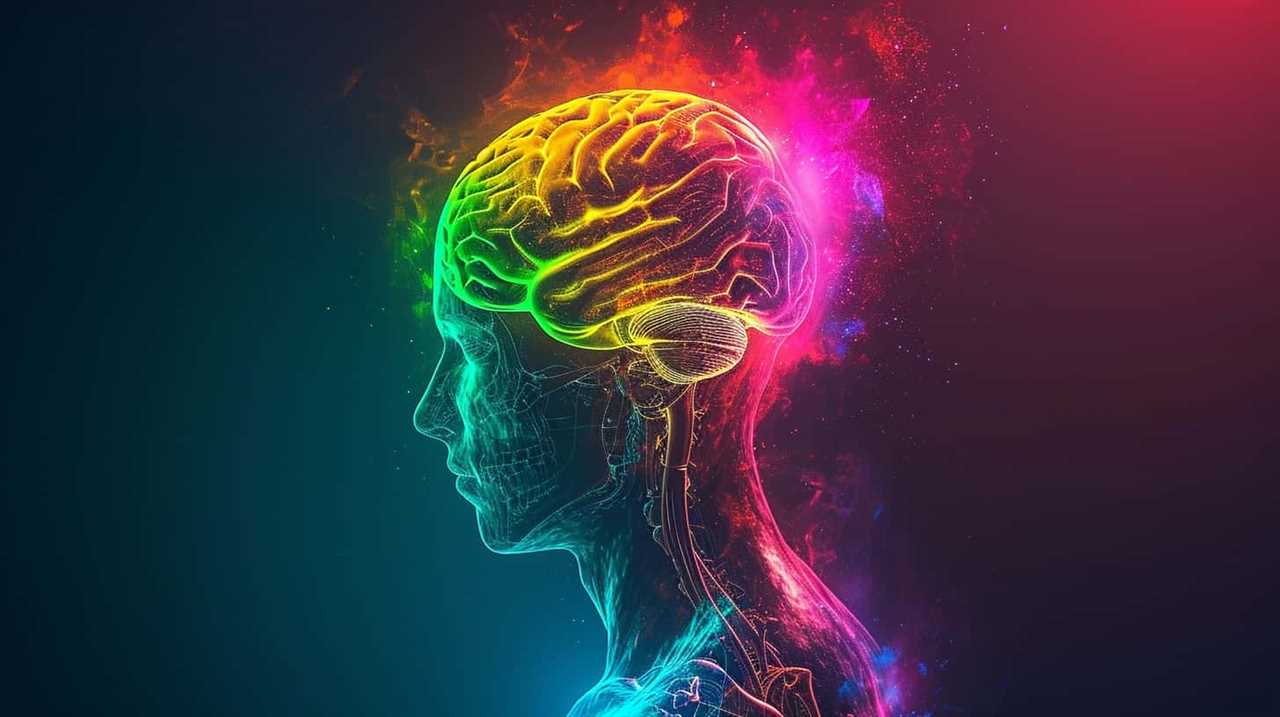Are you prepared to delve into the depths of consciousness and unravel the enigmas of the mind? Welcome to ‘Philosophers on Consciousness: A Quote Collection,’ where we examine the profound ideas of the most influential thinkers in history.
In this innovative compilation, we invite you to join us on a journey of intellectual exploration, as we uncover the diverse perspectives on consciousness from philosophers such as Plato, Aristotle, Descartes, and more. Through their insightful quotes, we aim to challenge conventional notions and inspire new ways of thinking about the nature of consciousness.
Whether you’re a philosopher, a curious mind, or simply seeking innovative ideas, this collection is sure to ignite your imagination and spark new avenues of thought. Let’s embark on this intellectual adventure together!
Key Takeaways
- Plato’s Theory of Forms and the Allegory of the Cave highlight the idea that there is a world of true reality beyond what our senses perceive, suggesting that consciousness may extend beyond our immediate experiences.
- Descartes’ Dualism and the mind-body problem raise questions about the relationship between the physical body and the immaterial mind, challenging traditional notions of consciousness as solely a product of the brain.
- Spinoza’s Panpsychism proposes that consciousness is present in all aspects of nature, expanding the scope of consciousness beyond human cognition and challenging anthropocentric views.
- Husserl’s phenomenology emphasizes the subjective nature of perception and experience, encouraging individuals to suspend preconceived beliefs and engage in a reductionist approach to understanding consciousness.

Plato’s Perspectives
We believe Plato offers unique insights on consciousness in his philosophical works. His theory of Forms, as explained in his famous allegory of the cave, provides a thought-provoking perspective on the nature of reality and the human mind.
Plato’s theory posits that the material world we perceive through our senses is merely a shadow or reflection of a higher realm of perfect, unchanging Forms. These Forms represent the true essence of things, including concepts like beauty, justice, and truth. According to Plato, our consciousness is capable of recognizing these Forms through a process of remembering, as our souls have encountered them in a previous existence.
Plato’s allegory of the cave further elucidates his theory of consciousness. In this allegory, he describes a group of prisoners who’ve been chained inside a cave since birth, their only perception of reality being the shadows cast on the wall in front of them. When one of the prisoners is freed and exposed to the outside world, he’s initially blinded by the sunlight but eventually comes to understand the true nature of reality. This allegory serves as a metaphor for the journey of the philosopher, who must break free from the illusions of the material world to attain true knowledge and understanding.
Plato’s perspectives on consciousness challenge our conventional understanding of reality and invite us to explore the depths of our own minds. By contemplating the existence of a higher realm of Forms and the limitations of our sensory perception, Plato encourages us to question the nature of our own consciousness and the extent of our knowledge. His philosophical works continue to inspire innovation and provoke intellectual inquiry to this day.

Aristotle’s Insights
Aristotle offers valuable insights on consciousness in his philosophical works. His philosophy and theories on consciousness provide a unique perspective that adds depth to our understanding of the human experience. Aristotle believed that consciousness is an essential aspect of being human, as it allows us to perceive, think, and reason. According to him, consciousness isn’t a separate entity, but rather an integral part of our overall existence. He argued that consciousness arises from the interactions between the senses and the mind, and it’s through these interactions that we gain knowledge and understanding of the world around us.
Aristotle’s theories on consciousness emphasized the importance of observation and empirical evidence. He believed that by observing and studying the world, we can gain a deeper understanding of ourselves and our consciousness. This emphasis on observation and empirical evidence laid the foundation for the scientific method, which has greatly shaped our understanding of consciousness and the world.
As we delve into Descartes’ dualism, it’s important to recognize the influence of Aristotle’s ideas on subsequent philosophical thought. Descartes’ dualism, which proposes the separation of mind and body, can be seen as a departure from Aristotle’s holistic perspective. However, Aristotle’s insights on consciousness continue to inspire and challenge us to explore the nature of our own existence and the intricacies of consciousness itself.

Descartes’ Dualism
Descartes’ Dualism presents a contrasting perspective on consciousness and its relationship to the mind and body. Descartes believed that the mind and body are two distinct entities that interact with each other. Here are four key points to consider about Descartes’ Dualism:
- Descartes’ Mind-Body Problem: Descartes’ philosophy centered around the idea that the mind and body are separate entities. He argued that while the body is physical and subject to the laws of nature, the mind is non-physical and possesses consciousness. This gave rise to the mind-body problem, which explores the nature of their interaction.
- Dualistic View: Descartes’ theory of interactionism posits that the mind and body interact through the pineal gland, a small structure in the brain. According to Descartes, the mind influences the body through conscious thoughts, while the body affects the mind through sensory experiences.
- Consciousness as Essential: Descartes believed that consciousness is an essential attribute of the mind. He argued that even if all physical sensations were removed, there would still be an awareness of one’s own existence. This concept of consciousness as an inherent property of the mind remains influential in philosophy and cognitive science.
- Critiques and Alternatives: Descartes’ Dualism has faced criticisms over the years. Some argue that the mind-body interaction proposed by Descartes is difficult to explain within the framework of modern science. Alternative theories, such as monism or materialism, propose that the mind and body are inseparable and that consciousness arises from physical processes in the brain.
Descartes’ Dualism presents a thought-provoking perspective on the relationship between consciousness, the mind, and the body, challenging us to further explore and understand the nature of our own existence.

Spinoza’s Panpsychism
Spinoza’s Panpsychism offers a unique perspective on consciousness by asserting that all things possess an inherent mental essence. According to Spinoza, the mind and the body are not separate entities, but rather different aspects of the same substance. This perspective challenges the traditional Cartesian dualism, which posits a strict separation between mind and matter.
Spinoza’s panpsychism emphasizes the unity of mind and body, suggesting that consciousness is not solely the domain of human beings, but rather a fundamental aspect of the entire universe. This view implies that even inanimate objects, such as rocks or plants, possess a form of consciousness, albeit in a different and less complex manner than humans.
To illustrate this concept, let us consider the following table:
| Mind Body Unity | Consciousness and Matter | |
|---|---|---|
| Spinoza’s Panpsychism | Asserts that mind and body are different aspects of the same substance | Suggests that all things, even inanimate objects, possess a form of consciousness |
| Cartesian Dualism | Posits a strict separation between mind and matter | Limits consciousness to human beings and potentially some animals |
Spinoza’s panpsychism challenges our conventional understanding of consciousness, expanding its scope beyond human cognition. By recognizing the inherent mental essence of all things, this perspective opens up new possibilities for exploring the nature of consciousness and its relationship to the material world.

Leibniz’s Monadology
Leibniz’s Monadology introduces the concept of monads, which are indivisible, non-physical entities that make up the fundamental building blocks of reality. These monads are characterized by their unique perceptions and appetites, and they exist in a harmonious, pre-established harmony that’s guided by a divine creator.
The implications of Monadology are far-reaching, as it challenges traditional notions of substance and causality, and offers a holistic understanding of the interconnectedness of all things.
However, critics argue that Leibniz’s theory lacks empirical evidence and fails to provide a satisfactory explanation for the interaction between monads.
Leibniz’s Monads Explained
In our exploration of consciousness, we delve into the conceptual framework of Leibniz’s Monadology, a theory that postulates the existence of individual entities known as monads. Leibniz’s monads have profound metaphysical implications and continue to influence contemporary philosophy.
Here are four key aspects of Leibniz’s monads:
- Monads are simple substances: According to Leibniz, monads are indivisible and self-contained entities that lack any internal structure. They’re the basic building blocks of reality.
- Windowless monads: Leibniz describes monads as windowless, meaning they don’t interact with each other directly. Instead, they reflect the entire universe within themselves, perceiving and experiencing the world independently.
- Pre-established harmony: Despite their lack of direct interaction, monads are in perfect harmony with each other. Leibniz posits that a benevolent deity has pre-established a harmony between monads, ensuring that their experiences align.
- Monadological idealism: Leibniz’s theory can be seen as a form of idealism, as it suggests that reality is ultimately composed of mental entities. This idea challenges traditional materialist views and opens up new avenues for exploring the nature of consciousness.
Leibniz’s monads have sparked ongoing debates and have inspired contemporary philosophers to explore the intricacies of consciousness, perception, and the nature of reality.
Implications of Monadology
The implications of Monadology are far-reaching, shaping our understanding of consciousness and the nature of reality. Leibniz’s theory of monads, as self-contained substances, has profound implications for the concepts of determinism and the mind-body problem.
Monadology suggests that the universe is fundamentally deterministic, with each monad following a pre-established harmony. This challenges our traditional notions of free will, suggesting that all events are predetermined by the interactions of monads.
Furthermore, monads are considered to be immaterial and indivisible, raising questions about the relationship between mind and body. Are they separate entities or different aspects of the same substance? Monadology challenges us to reconsider our understanding of the mind-body relationship, offering a unique perspective on consciousness and its place within the fabric of reality.
As we delve into the critiques of monad theory, we’ll further explore the implications and limitations of this groundbreaking philosophical framework.
Critiques of Monad Theory
Critiques of Monad Theory offer alternative perspectives on the implications of Leibniz’s theory of monads and its impact on our understanding of consciousness and reality. While Leibniz’s Monadology provides a fascinating framework for explaining the nature of existence, it isn’t without its limitations.
Some critics argue that the theory fails to adequately address certain aspects of consciousness, such as the problem of qualia and the subjective experience of the self. Additionally, the monad theory’s emphasis on individual substances may overlook the interconnectedness and interdependence of phenomena in the world. Furthermore, the idea that monads are immaterial entities raises questions about their interaction with the material world.
Despite these critiques, the theory of monads has stimulated alternative perspectives on consciousness and reality, challenging us to explore new ways of understanding the nature of existence.
Transition: While the Monad Theory provides one perspective on consciousness, another influential theory is Hume’s Bundle Theory. Let’s delve into this alternative viewpoint.

Hume’s Bundle Theory
Hume’s Bundle Theory proposes that the self isn’t a unified entity, but rather a collection or bundle of different perceptions and experiences. According to Hume, there’s no underlying substance or essence that holds these perceptions together. This theory challenges traditional notions of personal identity and raises questions about the nature of consciousness and the self.
Alternative theories to Hume include the substance theory, which posits that there’s a fundamental essence that constitutes the self, and the Cartesian dualism, which separates the mind and body as distinct entities.
Hume’s Theory Explained
One philosopher’s theory on consciousness that we find intriguing is Hume’s Bundle Theory. According to Hume’s skepticism and empirical observations, he proposed that the self isn’t a unified and enduring entity, but rather a collection of different perceptions and experiences that continually change.
Here are four key points to understand Hume’s Bundle Theory:
- No fixed self: Hume argued that there’s no underlying substance or essence that constitutes our self. Instead, our sense of self arises from the constantly changing bundle of perceptions we experience.
- Identity through continuity: Hume suggested that our sense of identity is derived from the continuity and connection between our past and present experiences.
- No inherent qualities: Hume believed that there are no inherent qualities or characteristics that define our self. We’re simply the sum of our experiences.
- No substantial existence: Hume denied the existence of a substantial, enduring self, concluding that our sense of self is a mere illusion.
With Hume’s Bundle Theory in mind, let’s now explore alternative theories to Hume that seek to explain the nature of consciousness.
Alternative Theories to Hume
Continuing our exploration of consciousness, we delve into alternative theories to Hume’s Bundle Theory. While Hume argued that the self is merely a bundle of perceptions, there are other philosophers who propose different explanations for the nature of consciousness.
One significant debate arises from the conflict between determinism and free will. Some argue that if our thoughts and actions are determined by prior causes, then we can’t truly have free will. Others contend that free will is compatible with determinism, suggesting that our choices are influenced by both external factors and internal deliberation.
Another aspect to consider is the mind-body problem, which questions the relationship between the physical body and the conscious mind. Various theories have been proposed, ranging from dualism, which posits a separation between the mind and body, to physicalism, which asserts that consciousness is a product of the brain.
These alternative theories provide innovative perspectives on consciousness, pushing the boundaries of our understanding.

Kant’s Transcendental Idealism
In our exploration of consciousness, we delve into the realm of Kant’s Transcendental Idealism, which posits that our perception of the world is shaped by the inherent structures of our mind. According to Kant, our experience of reality isn’t a direct reflection of the external world, but rather a result of the way our minds organize sensory data. This theory challenges the notion of an objective reality independent of our perception.
To understand Kant’s Transcendental Idealism, it’s important to consider the following:
- Kant’s noumenal reality: Kant argued that there’s a realm of reality that exists independently of our perception, the noumenal reality. However, we can never truly know this reality, as our perception is limited to the phenomenal world.
- Kant’s critique of pure reason: Kant believed that our reason has inherent limitations that prevent us from gaining knowledge of the noumenal reality. He argued that our understanding is bound by certain categories and concepts that structure our perception.
- Subjective nature of perception: According to Kant, our perception of the world is subjective, as it’s shaped by our mental faculties and the categories we use to make sense of our experiences.
- The role of intuition: Kant emphasized the importance of intuition in our perception. He believed that intuition allows us to directly grasp the sensory data and organize it according to the categories of our understanding.
Kant’s Transcendental Idealism provides a unique perspective on consciousness, challenging traditional notions of objective reality. By considering the inherent structures of our mind, Kant invites us to question the nature of our perception and the boundaries of our knowledge.

Hegel’s Absolute Spirit
Building upon Kant’s Transcendental Idealism, we now delve into Hegel’s Absolute Spirit, which further explores the nature of consciousness and expands on the concept of subjective perception. Hegel’s philosophy is characterized by his dialectic method, which involves the resolution of opposing ideas through a process of thesis, antithesis, and synthesis.
In the context of consciousness, this dialectic unfolds as the movement from subjective perception to absolute knowledge. Hegel argues that consciousness isn’t static, but rather dynamic, constantly evolving towards a higher form of self-awareness. Through the dialectical process, subjective perception is challenged and transformed, leading to the recognition of the interconnectedness of all things. This recognition of interconnectedness is what Hegel refers to as Absolute Spirit.
Absolute Spirit represents the culmination of consciousness, where the individual transcends their limited perspective and attains a comprehensive understanding of the world. It’s the realization that everything is interconnected and that there’s a unity underlying all existence.
Hegel’s concept of Absolute Spirit has profound implications for our understanding of consciousness. It challenges the idea that perception is purely subjective and highlights the potential for individuals to attain a higher level of awareness. By embracing the dialectical process and striving for absolute knowledge, we can transcend our limited perspectives and gain a deeper understanding of ourselves and the world around us.

Schopenhauer’s Will
Schopenhauer’s metaphysical perspective offers a unique lens through which to view consciousness. Central to his philosophy is the concept of the Will, which he considers the fundamental essence of reality. According to Schopenhauer, the Will is the driving force behind all human desires and actions, and it underlies the entire fabric of existence.
Understanding Schopenhauer’s notion of the Will can provide valuable insights into the nature of consciousness and its relationship to the world around us.
Schopenhauer’s Metaphysical Perspective
From our metaphysical perspective, we explore the concept of Schopenhauer’s Will and its implications for consciousness. Schopenhauer believed that the fundamental essence of reality isn’t physical matter, but rather an invisible force called the Will. This metaphysical reality, according to Schopenhauer, is the driving force behind all phenomena and experiences in the world.
When it comes to consciousness, Schopenhauer argued that our subjective experience is a manifestation of the Will. Here are four key implications of Schopenhauer’s metaphysical perspective:
- Unity of all beings: The Will is the same essence that underlies all living beings, connecting us in a fundamental way.
- Desire and suffering: The Will is driven by desires, which lead to suffering and dissatisfaction in our lives.
- Escape from suffering: Schopenhauer suggested that we can escape suffering by transcending our individual desires and aligning ourselves with the Will.
- Art and aesthetic experience: Schopenhauer believed that art provides a temporary escape from the world of desires, allowing us to experience a deeper connection with the Will.
Schopenhauer’s metaphysical perspective offers a unique lens through which to understand consciousness and our place in the world. By exploring the implications of the Will, we can gain deeper insights into the nature of subjective experience and the human condition.
The Nature of Will
The nature of Schopenhauer’s Will is a central concept in understanding consciousness and its implications. Schopenhauer posited that the Will is the fundamental force underlying all of reality, driving the actions and desires of individuals. However, he also acknowledged the limits of will, suggesting that it isn’t entirely free. This raises the question of whether we truly possess free will or if our actions are merely determined by the Will.
Schopenhauer’s perspective adds nuance to the ongoing free will debate, challenging the idea that we’ve complete control over our choices and actions. Instead, he suggests that our will is influenced by external factors and unconscious desires. This concept of the Will as a driving force with inherent limitations sets the stage for exploring Nietzsche’s contrasting idea of the will to power.

Nietzsche’s Will to Power
In our exploration of philosophers’ perspectives on consciousness, we delve into Nietzsche’s concept of the Will to Power. Nietzsche’s critique of traditional moral values and his radical ideas have had a profound influence on the field of philosophy and continue to be a subject of fascination for scholars and thinkers alike. Here are four key aspects of Nietzsche’s Will to Power:
- Overcoming Nihilism: Nietzsche saw the Will to Power as a way to overcome the nihilism that he believed was plaguing modern society. He argued that this will to power is the driving force behind all human actions and desires, and that embracing it could lead to a more authentic and fulfilling existence.
- Beyond Good and Evil: Nietzsche’s Will to Power challenges traditional notions of good and evil. He believed that morality was subjective and that individuals should create their own values based on their will to power. This rejection of absolute moral truths was a radical departure from the prevailing ideas of his time.
- Self-Overcoming: Nietzsche saw the Will to Power as a means of self-overcoming, a constant process of self-transcendence and growth. He believed that individuals should constantly strive to overcome their limitations and embrace their full potential.
- Creative Force: The Will to Power isn’t just a destructive force, but also a creative one. Nietzsche argued that it’s through this will that individuals can tap into their creative energies and contribute to the advancement of society.
As we transition into the next section about James’ stream of consciousness, it’s important to recognize that Nietzsche’s concept of the Will to Power challenges conventional thinking about the nature of consciousness and offers a unique perspective on human existence.

James’ Stream of Consciousness
One of the influential perspectives on consciousness is William James’ stream of consciousness, which offers valuable insights into the subjective and dynamic nature of our inner experiences. James’ introspection, coupled with his study of cognitive processes, allowed him to delve into the intricate workings of the human mind.
To fully understand James’ stream of consciousness, it is crucial to explore the key elements that define this perspective. The following table provides a comprehensive overview of these elements:
| Element | Description |
|---|---|
| Flow | James believed that conscious thoughts flow continuously, without clear boundaries or divisions. This fluidity allows for the seamless transition from one thought to another. |
| Stream | The stream of consciousness represents the ever-changing and ever-evolving nature of our thoughts and experiences. It captures the dynamic and subjective nature of our inner world. |
| Subjectivity | James emphasized the deeply personal and individual nature of consciousness. Each person’s stream of consciousness is unique, shaped by their own experiences, memories, and perceptions. |
| Selectivity | Within the stream of consciousness, we have the ability to selectively focus our attention on certain thoughts, ideas, or stimuli while disregarding others. This selectivity influences our conscious experience. |
James’ stream of consciousness offers a fresh perspective on consciousness, highlighting its dynamic nature and the role of introspection in understanding our cognitive processes. By recognizing the fluidity, subjectivity, and selectivity of consciousness, we can gain a deeper understanding of the complexities of our inner experiences.

Husserl’s Phenomenological Reduction
Husserl’s phenomenological reduction is a method that seeks to uncover the essential structures of consciousness by suspending our preconceived beliefs and judgments.
The key concept of reduction involves setting aside the natural attitude and bracketing off the external world, focusing solely on the immediate experiences and phenomena as they appear to us.
Through this process, Husserl aims to access the pure, unfiltered consciousness that lies beneath our everyday perception and uncover the fundamental features of subjective experience.
Husserl’s Method Explained
Exploring the method of Husserl’s phenomenological reduction allows us to gain deeper insights into the nature of consciousness. This method, developed by the philosopher Edmund Husserl, is a key component of his phenomenological approach to understanding the subjective experience of consciousness. Here are four key aspects of Husserl’s method and how they contribute to our understanding of consciousness:
- Suspension of judgment: Husserl encourages us to temporarily set aside our preconceived notions and beliefs in order to approach consciousness with a fresh perspective.
- Epoche: This term refers to the act of bracketing or suspending our assumptions about the external world, focusing solely on the phenomena as they appear to us in consciousness.
- Intentionality: Husserl emphasizes that consciousness is always directed towards something, whether it be an object, a thought, or a feeling. This intentional aspect of consciousness is fundamental to its understanding.
- Phenomenological reduction: Through the process of reduction, we strip away the layers of interpretation and conceptualization to get to the pure experience itself, allowing us to examine the essence of consciousness.
Key Concepts of Reduction
In the exploration of Husserl’s phenomenological reduction, we encounter key concepts that shed light on the nature of consciousness. Reductionism in science is a concept that aims to explain complex phenomena by breaking them down into simpler components. While reductionism has been successful in various scientific domains, it has its limitations when it comes to understanding consciousness. The reductionist approach may overlook the holistic and interconnected nature of consciousness, focusing solely on the individual parts. This reductionist perspective fails to capture the emergent properties and the rich tapestry of subjective experiences that make up consciousness. To illustrate this, consider the following table:
| Reductionism in Science | Limitations of Reduction |
|---|---|
| Breaks down complex phenomena into simpler components | Overlooks holistic nature of consciousness |
| Focuses on individual parts | Fails to capture emergent properties |
| Successful in various scientific domains | Misses the rich tapestry of subjective experiences |
In order to truly understand consciousness, we must move beyond reductionism and embrace a more inclusive and integrative approach that considers the interconnectedness and complexity of conscious experiences.

Sartre’s Existentialist Consciousness
We find that Sartre’s existentialist consciousness offers a unique perspective on the nature of human existence. Sartre’s philosophy is grounded in the concepts of existentialist ontology and the phenomenology of consciousness, which provide a framework for understanding the complexities of human experience.
Here are four key aspects of Sartre’s existentialist consciousness:
- Radical Freedom: Sartre argues that humans are fundamentally free and responsible for their actions. Consciousness isn’t a passive observer but an active force that creates meaning and values through choices.
- Existential Anguish: Sartre emphasizes the existential anguish that arises from the awareness of our freedom. The burden of choice and the anxiety of confronting the uncertainty of existence shape our consciousness.
- Authenticity: Sartre urges individuals to embrace authenticity by taking responsibility for their choices and actions. By living in accordance with our true selves, we can overcome societal expectations and find genuine fulfillment.
- Bad Faith: Sartre criticizes the tendency of individuals to deny their freedom and live in bad faith. This self-deception allows people to evade responsibility and conform to societal norms, leading to inauthentic lives.
Sartre’s existentialist consciousness challenges us to confront the complexities and contradictions of our existence, urging us to embrace our freedom and live authentically. With this understanding of Sartre’s perspective, we can now transition to discussing Dennett’s Multiple Drafts Theory.

Dennett’s Multiple Drafts Theory
How does Dennett’s Multiple Drafts Theory challenge traditional notions of consciousness?
Dennett’s interpretation of consciousness as a series of multiple drafts challenges the traditional view that consciousness is a unified and continuous stream of experience. According to Dennett, our conscious experience isn’t a single narrative, but rather a collection of constantly updated drafts or interpretations of our ongoing experiences.
This theory has profound implications for our understanding of consciousness. It suggests that our conscious experience isn’t fixed or predetermined, but rather a dynamic and ongoing process of interpretation. Dennett argues that our conscious experience is constructed by our brains, which constantly generate and update multiple drafts of our experiences. These drafts are then selected and integrated into our overall conscious experience, which gives us the illusion of a unified and continuous stream of consciousness.
Dennett’s Multiple Drafts Theory challenges the traditional notion of a central, unified self that’s in control of our conscious experience. Instead, it suggests that our conscious experience is a result of the interaction between various cognitive processes and neural mechanisms. This challenges the idea that there’s a single, stable self that’s the source of our conscious experience.
The implications of Dennett’s theory are far-reaching. It suggests that our conscious experience isn’t a direct reflection of the world, but rather a construction that’s shaped by our cognitive processes and neural mechanisms. This challenges the idea that our conscious experience is an objective representation of reality. Instead, it suggests that our conscious experience is a subjective and interpretive process.
Dennett’s Multiple Drafts Theory also has implications for our understanding of agency and free will. If our conscious experience isn’t a single narrative, but rather a collection of interpretations, then it raises questions about the nature of our intentions and actions. If our conscious experience is constantly being updated and revised, then it challenges the idea that we’ve full control over our thoughts and actions.

Frequently Asked Questions
How Did Plato’s Perspectives on Consciousness Influence Later Philosophical Thought?
Plato’s perspectives on consciousness have had a significant influence on later philosophical thought. His ideas about the nature of reality and the existence of the soul continue to be relevant and shape our understanding of consciousness today.
What Are Some Key Differences Between Spinoza’s Panpsychism and Descartes’ Dualism?
When comparing Spinoza’s panpsychism and Descartes’ dualism, we find both similarities and differences. By examining the ontological implications of panpsychism and dualism, we can gain a deeper understanding of their contrasting perspectives on consciousness.
How Does Kant’s Transcendental Idealism Relate to His Understanding of Consciousness?
Kant’s transcendental idealism illuminates his understanding of consciousness by highlighting the role of his epistemology. Subjectivity and perception shape our self-awareness and self-consciousness, revealing how our minds construct reality. This innovative perspective challenges traditional notions of knowledge and perception.
What Are Some Main Criticisms of Hegel’s Concept of the Absolute Spirit?
Some main criticisms of Hegel’s concept of the absolute spirit include its reliance on Hegel’s idealism, its limited understanding of self-consciousness, its oversimplified dialectic, and its problematic teleology. These critiques challenge the innovation of Hegel’s philosophy.
How Does Sartre’s Existentialist Consciousness Differ From Husserl’s Phenomenological Reduction?
Sartre’s existentialist consciousness differs from Husserl’s phenomenological reduction in that it emphasizes individual freedom and choice, while Husserl’s approach focuses on the intentionality of consciousness and the study of pure experience.

How Do Philosophers from the Past Contribute to Modern Understandings of Consciousness?
The study of consciousness has been greatly influenced by the ideas of philosophers from the past. Their exploration of the nature of the mind and subjective experience continues to inform modern minds. Their epistemological insights into the nature of knowledge and understanding have shaped contemporary perceptions of consciousness.
Conclusion
In exploring the perspectives of philosophers on consciousness, we’re confronted with a web of ideas that challenge our understanding of self and reality.
From Plato to Dennett, each philosopher offers a unique lens through which to examine this enigmatic phenomenon.
Whether it be Descartes’ dualism or Sartre’s existentialist consciousness, these philosophical theories force us to question the nature of our existence and the boundaries of our consciousness.
As we delve deeper into this realm of thought, we’re reminded that the exploration of consciousness is an ongoing journey, one that continues to captivate and perplex us.









